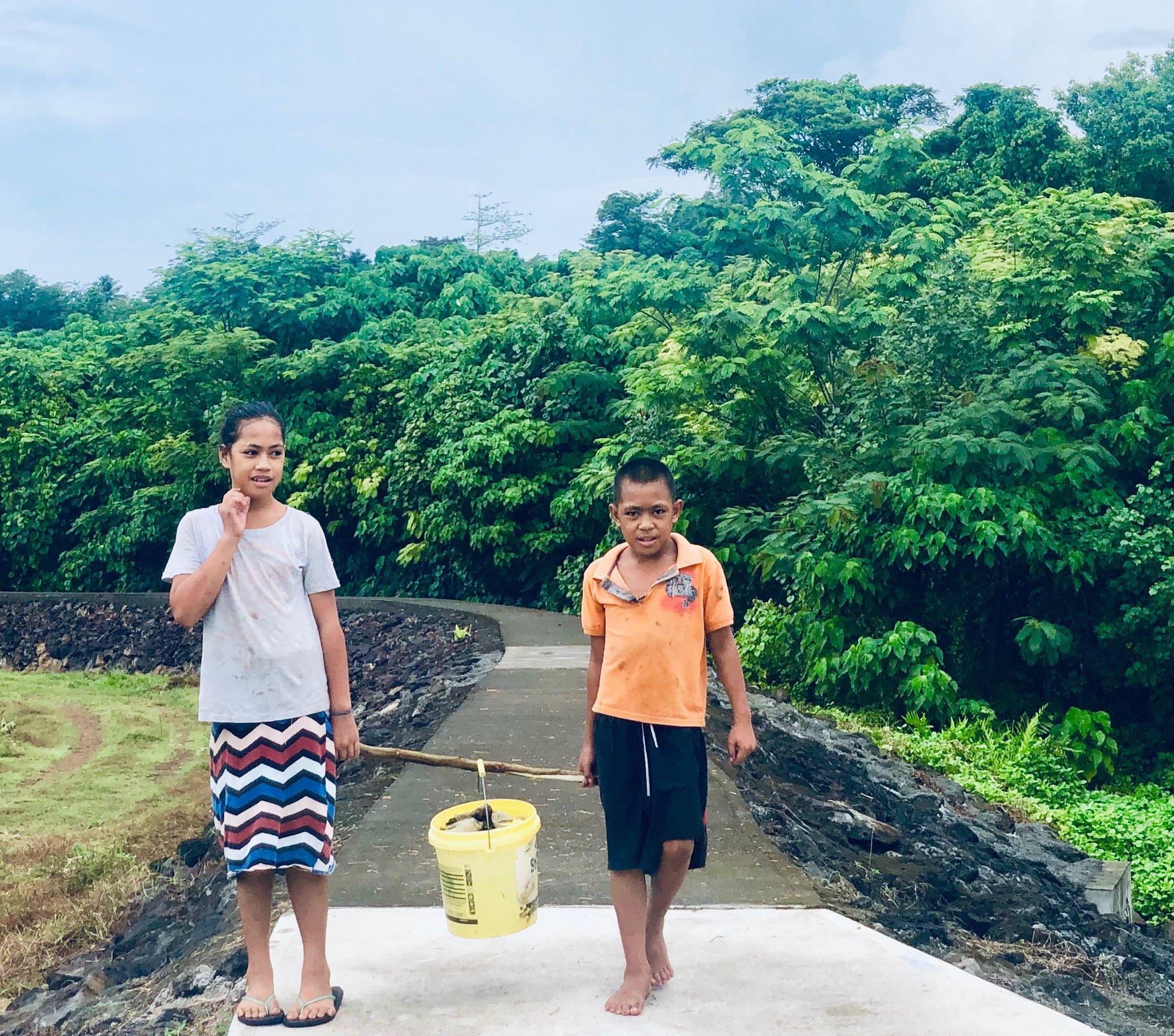Young children cross the walkway to go to the local market to sell food in Samoa, a small island developing state in the Pacific. The walkway was created under the AF funded project implemented by UNDP to protect against erosion and mudslides caused by sea rise and flooding. (Photo by Adaptation Fund)
Adaptation Fund Accredits Pacific Community to Accelerate Climate Action in Pacific Region
Washington, D.C. (September 8, 2021) — The Adaptation Fund has enhanced support for climate adaptation and resilience for developing countries in the Pacific region by accrediting the Pacific Community (SPC) as its 8th regional implementing entity (RIE). This decision was made through a virtual intersessional Board action in late August.
SPC marks the second regional implementing entity to gain accreditation in the Pacific region, following the Secretariat of the Pacific Regional Environment Programme (SPREP) headquartered in Samoa. It also represents the Fund’s 56th implementing entity overall.
SPC was accredited through a Fast-Track Accreditation process available to implementing entities that have already been accredited by the Green Climate Fund (GCF) to make the process more efficient. SPC received its Green Climate Fund (GCF) accreditation in February 2019. This accreditation makes SPC the fourth entity — after the UN Food and Agriculture Organization, UN Industrial Development Organization, and Palli Karma-Sahayak Foundation of Bangladesh — to be accredited through the Adaptation Fund’s Fast-Track Accreditation process.
SPC, which was established by the Agreement Establishing the South Pacific Commission in 1947, serves as the principal scientific and technical organization supporting development in the Pacific region. Headquartered in Nouméa, New Caledonia, it is owned and governed by 26 members, including all 22 Pacific island countries and territories. SPC includes mostly vulnerable developing countries and Small Island Developing States (SIDS), as well as some developed country territories. SPC has supported its member countries’ development goals focusing on sustainable economic development, capacity building, and enhanced health and livelihoods. SPC has also developed a track record in financing climate change-related projects in the Pacific region, along with other activities including capacity-building, project implementation, policy, research, and demonstrative actions.
SPC’s member countries and territories are home to more than 100 million people, and most of them are in SIDS. “With this accreditation, the Adaptation Fund expands access to climate finance in the Pacific region that empowers some of the most vulnerable developing countries with timely and appropriate climate actions, including through regionally designed projects and collaborative approaches,” said Mr. Mattias Broman, Adaptation Fund Board Chair.
Frequent exposure to extreme weather and climate events, sea level rise, small population numbers, and limited resources make SIDS uniquely vulnerable to climate change. The effects of climate change in the region are significant, impacting livelihoods and industries such as agriculture, fishing, and tourism.
The Adaptation Fund supports a substantial portfolio of projects in SIDS worldwide with almost 20 percent of its projects and programmes in SIDS. Seven of the Fund’s National Implementing Entities under its pioneering Direct Access modality that builds country ownership in adaptation are also from SIDS.
Further, about a quarter of the Adaptation Fund’s US$ 850 million portfolio is invested in projects in the Asia Pacific region. “This new accreditation of the SPC will further strengthen the Adaptation Fund’s support for the most vulnerable countries in the Pacific region, especially SIDS which have limited capacity to respond to and recover from climate change impacts,” said Mr. Mikko Ollikainen, Head of the Adaptation Fund. “We look forward to working with the SPC to address the region’s developing countries’ unique adaptation needs, through necessary, regional and country-specific financial and technical support.”
To date, the Adaptation Fund’s 56 total national, regional and multilateral implementing entities are carrying out 123 concrete projects on the ground in more than 100 developing countries – with about half in SIDS or least developed countries.
ABOUT THE ADAPTATION FUND
Since 2010, the Adaptation Fund has committed nearly US$ 850 million for climate change adaptation and resilience projects and programmes, including more than 123 concrete, localized projects in the most vulnerable communities of developing countries around the world with 28 million total beneficiaries. It also pioneered Direct Access, empowering countries to access funding and develop projects directly through accredited national implementing entities.
Communications: Matthew Pueschel, mpueschel@adaptation-fund.org or +1-202-473-6743
Attachments
| Attachment | Type | Size |
|---|---|---|
| Press Release September 8, 2021 | 127 KB |



